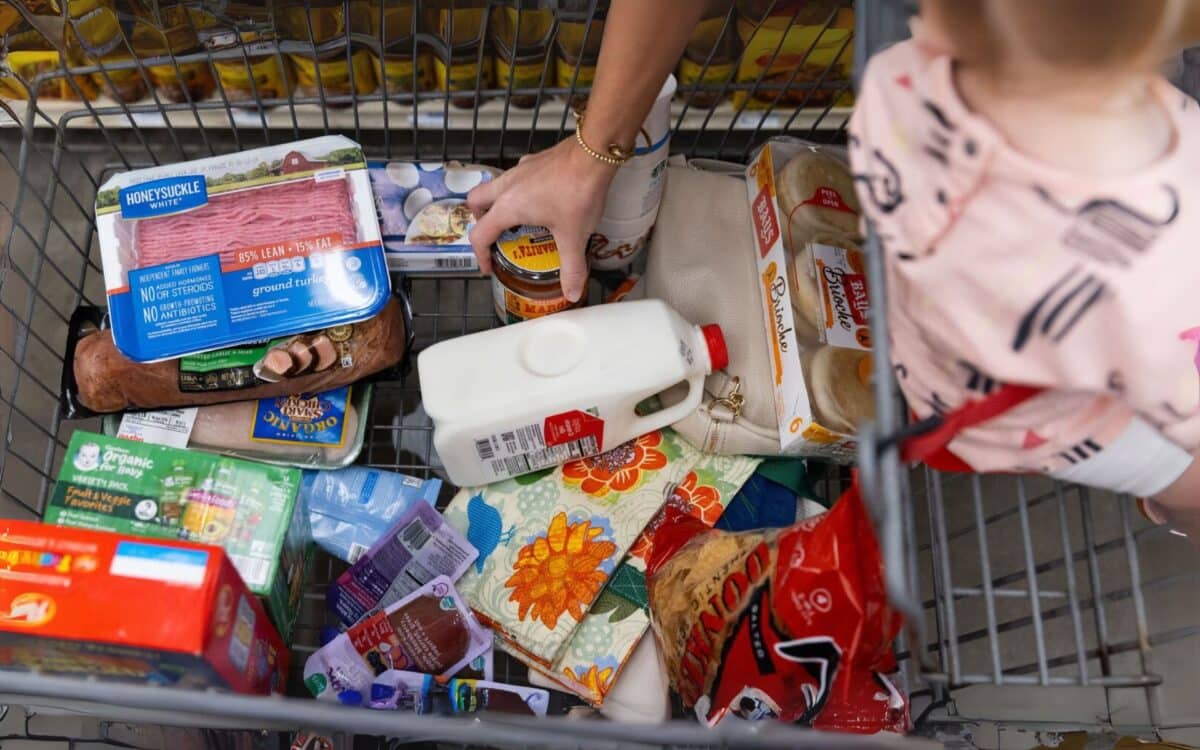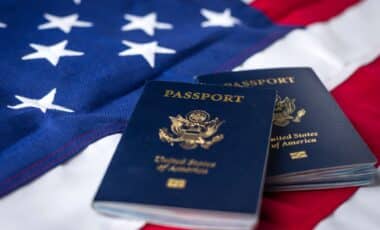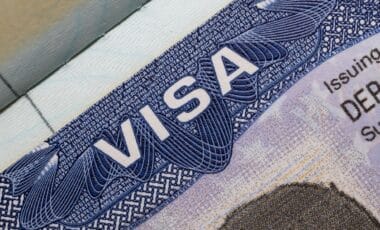Stockpiling goods ahead of the new tariffs imposed by the Trump administration is becoming a widespread strategy among US consumers. As the government prepares to implement these new import levies, many shoppers are proactively purchasing non-perishable items, fearing that the tariffs will result in significant price hikes.
The uncertainty surrounding the economic impact of the tariffs has prompted individuals, particularly those on fixed incomes and those concerned about a potential recession, to stockpile essential goods in an effort to mitigate the potential financial burden.
According to a report by Reuters, these fears are not just about rising costs but also about disruptions in supply chains. In this period of uncertainty, more consumers are looking to secure what they can before it becomes more expensive.
Rising Concerns About Inflation and Economic Downturn
For Thomas Jennings, a 53-year-old shopper from Secaucus, New Jersey, the strategy is simple : buy in bulk before prices rise.
I’m buying double of whatever – beans, canned goods, flour, you name it – he said
As he filled his shopping cart at Walmart. Jennings, like many other Americans, believes that the new tariffs will lead to higher retail prices, pushing him to secure as many goods as possible. He has also stocked up on flour, sugar, and water in bulk at Costco, fearing the looming threat of a recession.
There’s a recession coming and I am preparing for the worst – he explained.
A Fear of Supply Shortages and Panic Buying
The looming tariffs, which could cost Americans $3.1 trillion over the next decade, have sparked concerns that inflation will worsen. According to the Tax Foundation, this could result in a $2,100 tax increase per household by 2025 alone.
Manish Kapoor, founder of a supply chain management firm, noted that the tariffs are evoking memories of the panic buying seen during the COVID-19 pandemic.
We saw this during COVID as well, where everybody frantically went and grabbed everything on store shelves, whether they needed it or not – Kapoor said.
It’s not to that level, but people are worried that the cost (of goods) is going to go up and, you know, let’s stock up.
The Psychological Impact of Tariffs
Angelo Barrio, a retired garment industry professional, voiced frustration with the government’s approach. He described the tariff situation as “muddying the water and causing chaos.” Barrio began stockpiling essential items with long shelf lives back in November, fearing that retailers would pass on the costs of tariffs to customers. He said,
You can never be sure how much you’ll need
as he added two more bottles of olive oil to his stockpile, bringing his total to 20 bottles.
Concerns Over Senior Citizens and Fixed-Income Households
Maggie Collins, a health aide from North Bergen, New Jersey, is particularly worried about the impact of rising prices on senior citizens. Living on a fixed income, Collins explained,
I look at all the prices closely because I live on a fixed income. Paying a higher price somewhere means making adjustments to some other budget.
Collins has already adjusted her shopping habits, opting for cheaper Walmart brands over those from major companies like Procter & Gamble and Unilever. Her recent shopping experience at Shoprite, where she was forced to opt for a less expensive cut of meat, underscored her growing concern :
They are just getting out into this world where it has become so tough to survive.
A Surge in Car Sales Amid Tariff Talk
In the automotive sector, the introduction of a 25% tariff on fully imported cars has spurred an uptick in car sales. Nic Chuenchit, General Sales Manager at Valley Subaru in Longmont, Colorado, confirmed that customers are rushing to purchase cars earlier than planned.
Customers are talking about the tariffs, customers are asking us questions about them – Chuenchit said
I do think some of our customers who were planning to buy a car have done it sooner rather than later because of the talk about tariffs.
Despite the uncertainty, Chuenchit remains optimistic, stating,
This business is resilient. Car sales have always been there. People will still buy cars, even if there are tariffs. It’s just going to cost consumers more.
As tariffs loom and prices continue to rise, consumers are left to navigate an increasingly volatile economic landscape. While some are optimistic, others are bracing for a future that could involve higher costs and further disruptions.









